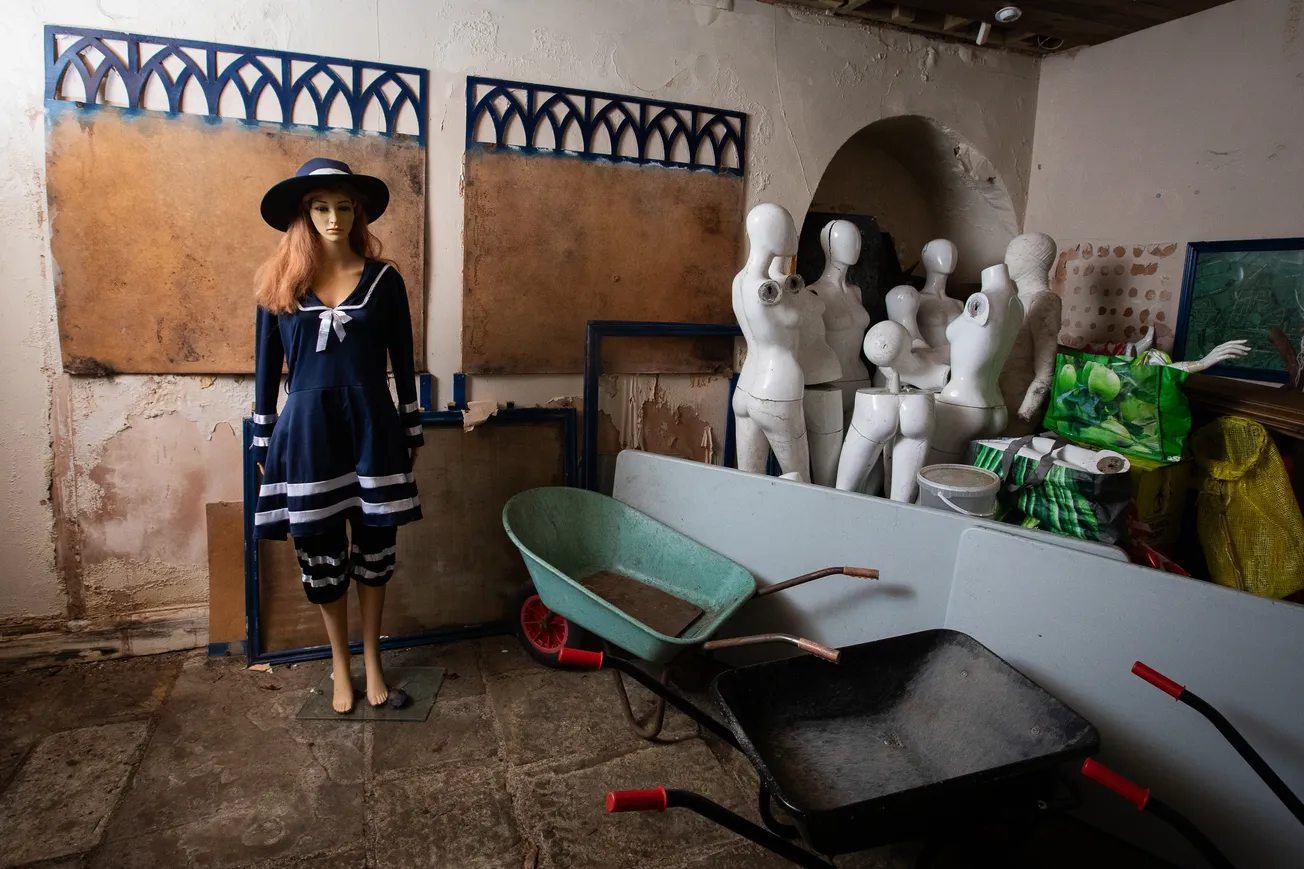Good morning and welcome to our very first newsletter.
Thanks for joining our mailing list so early on — in years to come you will be able to say you were one of the first 200 readers of The Tribune.
This is going to be a new publication for Sheffield that delivers weekly news briefings like this one and thoughtful, in-depth stories as well. We want to do local news in a completely different way, focusing on quality rather than quantity; on balanced, well-researched journalism that helps our readers to be better informed rather trying to generate millions of clicks.
We have one favour to ask: If you like what you see, please tell a few friends about The Tribune. Just forward this newsletter to them so they can sign up to our mailing list too, or hit the button below to share this post via text or on social media.
If someone forwarded you this newsletter, please join The Tribune’s mailing list to get all our journalism in your inbox.
The big story: Who runs Sheffield?
Top line: On top of the normal local elections, voters on May 6th also get to cast a ballot in a ‘people’s referendum’ on the way the council takes decisions. It’s a choice between two governance systems: the current Strong Leader model, in which the council leaders picks a powerful ‘cabinet’ of councillors, or a so-called Modern Committee System where power is more widely distributed.
Why change it? The group behind the campaign — It’s Our City! — argues that the leader and cabinet system puts too much power in the hands of just 10 councillors. They point to the £2bn private finance initiative at the heart of the Sheffield tree scandal as a prime example of a mistake that would have been avoided with more accountable decision-making.
- The group says: “Power in the council is based on the feudal patronage of the leader, rather than ability or merit and it relies on secrecy and the exercise of power by the few.” In a recent tweet the campaign says: “74 out of 84 cllrs in Sheffield are gagged & have little power.”
How this works: The Localism Act 2011 gave communities the right to change the system, providing they could get five per cent of eligible voters to trigger a referendum. It’s Our City! easily surpassed the 20,000 signatures they needed in 2019.

The counter-argument: Those who oppose this campaign — and the ruling Labour group is remaining officially neutral, so opposition is fairly thin on the ground — argue that replacing individuals with committees runs the risk of blurring the lines of accountability, and that weakening the role of the leader might make the council less decisive.
What’s striking about this campaign is the energy it is generating on social media. Activists have positioned their cause as an anti-establishment move that will shake up the power structures of Sheffield, and they are probably right about that.
What’s interesting is what happens if they succeed. As was the case with that other referendum we had in 2016, it’s the post-result haggling that matters. There is no rulebook for how councils implement a Modern Committee System — that has to be designed and agreed locally. Other councils — like Brighton and Reading — have done it in different ways. If this campaign wins, don’t expect the Labour leadership in Sheffield to give up power without a fight…
Register by 11:59pm on 19 April to vote in the elections on 6 May.
This week’s weather

Forecast sourced from the Met office. Location: Sheffield.
sheffield’s kill the bill protest marching down west street halting traffic
— Shahed Ezaydi (@shahedezaydi) 3:00 PM ∙ Mar 27, 2021
A snap from Saturday’s ‘Kill The Bill’ march in Sheffield, protesting the government’s controversial policing bill. You can read a good BBC explainer on the bill here.
A city mourns the passing of John Lewis
The biggest news in Sheffield last week was the announcement that the city’s John Lewis store on Barker’s Pool wouldn't be reopening after lockdown. It comes just months after the firm had apparently committed its future to Sheffield in a deal which saw the council buy the building for £3.4m last year.
- Around 300 jobs will go as a result of the closure, but perhaps even more significant than the store’s demise is where it leaves Sheffield city centre as a whole.
Context: Long-term changes in how we shop have been accelerated by the pandemic. Traditionally bustling shopping streets like Fargate have more empty units than filled ones, and the city centre desperately needs to reinvent itself for the post-Covid world. City leaders across the country think that hospitality and ‘experiential’ businesses are they key to rejuvenating high streets.
The reaction: The John Lewis news has prompted lots of suggestions for what to do with the iconic building, from flattening it to hold weekly artisan markets to turning it into an arts and culture centre. In a popular Twitter thread, Tom Hunt from the University of Sheffield wrote:
The greenest building is the one that already exists. So if we're serious about net zero we must stop always seeing demolition as the answer. Moreover, this is a high quality building that could lend itself to multiple creative new uses: retail, arts, hospitality & residential.
Here’s his thread:
The John Lewis news is clearly bad for Sheffield, most of all for the staff. If the store does close it's a chance to rethink a key part of the city centre - but this is a fine building and should stay. Re-use, don't demolish. Some early ideas on why & what could come next...🧵
— Tom Hunt (@tomhunt100) 8:23 PM ∙ Mar 24, 2021
A nice piece in the Guardian summed up the loss of an aspirational city institution:
“Bad news,” wrote my brother on WhatsApp after the closure was announced, a cue for us to remember its toy department, where as children we hankered after Lego, and its cafe, where we lived in hope of a vanilla slice (the cake stand rotated decorously, your hovering hand italicising your greed).
Covid-19 update
- The rules: Today marks the second stage of the government’s coronavirus ‘roadmap’, when groups of six (or two households) are once again allowed to meet outside and outdoor sports facilities can reopen.
- Case rate: Public health officials will be watching how this affects the city’s case rate, which has been creeping back up and stood at 129 per 100,000 in the seven days to March 23, a rise of more then 20 per cent on the previous week. That’s more than double the rate across England, which is 55.6.
- Hospitals: There were only 100 Covid-19 patients in hospital in Sheffield last week (down from a high of 417 on January 22) including seven on ventilation. Just four deaths linked to the virus were reported in the city.
- Vaccines: As of Thursday, 234,917 people had received their first dose of one of the vaccines, or just over 40 per cent of the city’s total population.
If you have any questions about the latest numbers or would like us to look into a claim you have seen on social media, please just email editor@sheffieldtribune.co.uk.
Book of the week
Kiss Myself Goodbye: The many lives of Aunt Munca by Ferdinand Mount
Written by a former editor of the Times Literary Supplement who is also a cousin of David Cameron, Kiss Myself Goodbye tells the true story of the author’s mysterious Aunt Munca, who grew up in Sheffield in the late 19th century but escaped her humble beginnings to rub shoulders with the rich and famous between the wars — and died a millionairess.

Writing in the Guardian, journalist Rachel Cooke says she doubted whether the Old Etonian author could truly capture her home city, but says his depiction of it is ‘beautiful and faultless’. She writes: “Its singular topography stirs him; he grasps that, more than most cities, it is a collection of villages; he has such feeling for its hulking chapels, crumbling steel mills and working poor.”
Aunt Munca never revealed the secret shame of her poor upbringing, leaving the author to trawl through census records for a decade trying to piece together the hidden story of a life with ‘more layers than an onion’, according to one smitten reviewer.
Five things to do
- Thud, crackle, pop: Sheffield artist Pete McKee’s love letter to vinyl is an online version of the hugely successful physical show which toured the country in 2014. The virtual exhibition includes dozens of Pete’s paintings as well as poetry, public information posters from the ‘Ministry of Audio Pleasure’ and even the artist’s vinyl-centred take on Hogarth’s ‘A Rake’s Progress’.
- Wellbeing walks: University of Sheffield’s School of Health and Related Research — respected experts on wellbeing — have a new post promoting the benefits of walking. Recent walks include a circuit around Damflask Reservoir and the fascinating Five Weirs Walk along the River Don and Tinsley Canal.
Had a great day doing the beautiful Five Weirs Walk from Lady’s Bridge to Meadowhall 😎 #SheffieldIsSuper #Sheffield
— The Steel City Snapper (@steelcitysnaps) 6:59 PM ∙ Jul 12, 2020
- The Sheffield Project: Photographs of a Changing City: This exhibition, which was originally displayed at Weston Park Museum, is still available to view at a rather fancy 3D website specially created for the show. Highlights include Bill Stephenson’s beautiful shots of the residents of Hyde Park flats as it was being cleared for demolition. City historian and raconteur Ron Clayton is also hosting an online talk about the photos next week.
- Feel Good Art Club: This regular online workshop held by Museums Sheffield aims to embrace the concept of ‘mindful drawing’ to help participants find the ‘stillness and calm’ needed to develop their artistic skills. This week’s session takes place on Thursday, April 1 between 6-7:30pm and costs £8.
- Countdown to fun: Pubs and restaurants can open once again for outdoor service from April 12th. City guide This is Sheffield has a good list of which independents are opening and when. Non-essential shops and hairdressers open the same day, but the Tribune is intending to spend much of the next two weeks planning which beer gardens to try first (purely for journalistic purposes of course).
Historical snapshot

This evocative photo caught our eye on Facebook recently, showing Pond Street bus station in all its 1970s glory. The station itself dates from the 1930s but was only covered in 1956, eventually becoming the Sheffield Interchange we all now know in the early 1990s.
The man who shared the photo on Facebook, Richard Jones, said he remembers going to the Minerva chippy after swimming at Sheaf Valley baths, and also meeting up with friends at the station’s ‘threpny bit’ kiosk. Richard also bravely admitted that he used to put ‘anything’ in the Videmat automatic ticket machines that were all the rage at the time, from 1p or 2p coins to washers. “It was easy,” he said. “Unless the conductor got on.”
Worth a look
- Poverty and the pandemic: This excellent BBC story and its accompanying Newsnight film (package begins at 22 minutes) details the uneven impact of coronavirus on different economic groups in Sheffield. Reporter Deborah Cohen visits the deprived east of the city, where working from home is less common and rates of Covid-19 infection are stubbornly high.
- Spotlight on Sheffield: If you can bear the Independent’s ad-heavy website, journalist Colin Drury has written up a really nice set of interviews with the residents of one Sheffield street: Lydgate Hall Crescent in Broomhill. The same reporter visited the street after 100 days of the pandemic last year, and went back earlier this month.
- Chocolate Heaven Since 1911: Set up by Joseph William Thornton in the early 20th century on Norfolk Street, the chocolatier Thorntons has closed its remaining shops. There are nice pieces in The Star, the Yorkshire Post and the BBC, looking back on the company’s history as well as a longer read in the Guardian which asks why the firm has struggled in recent years.
- Revealing station’s hidden rivers: The Star reports on a new project to reveal the hidden rivers under Sheffield station. The presenter of ‘Architecture the Railways Built’ says he hopes the rushing water will be visible and audible from the platform and the light is expected to attract fish and wildlife, possibly even North Atlantic salmon, now returning to Sheffield after over 200 years.
- Street Fighting Girls: The New Statesman has a lovely, strange and evocative piece of writing by Sheffield novelist Rachel Genn. The short story — which is about the author’s experiences in 1980s Sheffield, dressing up, ‘fighting and fucking’ in the long-gone Turn Ups nightclub — also features a stunning photo of the city taken from Cricket Inn Road which Genn reveals she now keeps in her kitchen. The photo shows ‘a land of war’, she writes; ‘a desolate, bombed-out, black and white time’.
Mini obituary
Tributes have been paid to Alma Ingle — the wife of legendary Sheffield boxing trainer Brendan — who has died aged 81. While the sporting exploits of her husband are well-known, Alma also made a significant contribution to the sport as a judge, promoter and official.

She qualified as an amateur boxing judge in 1975, earned a professional boxing promoter’s licence in 1981, and was later the first woman to be elected to a British Boxing Board of Control divisional committee. She also played a major role at the famous Ingle Gym in Wincobank, where stars such as Johnny Nelson and ‘Prince’ Naseem Hamed were groomed into world champions.
Alma — who was married to Brendan for 57 years until he passed away in 2018 — died from cancer at St Luke’s Hospice earlier this month. She leaves five children and 14 grandchildren.
Thanks for reading our first newsletter, we hope you liked it. We wanted to end by opening up the floor to you, our first readers, to shape our future coverage. The Tribune’s greatest asset will be working with its readers, so if you want to suggest stories you’d like us to cover, just hit reply to this newsletter. Or our email is editor@sheffieldtribune.co.uk.
And finally, if you liked this newsletter, please do tell a few friends or colleagues about The Tribune. We are brand new and rely on your help to get the word out. Just forward the email or hit the share button below.
If someone forwarded you this newsletter, please join The Tribune’s mailing list to get all our journalism in your inbox.

Comments
How to comment:
If you are already a member,
click here to sign in
and leave a comment.
If you aren't a member,
sign up here
to be able to leave a comment.
To add your photo, click here to create a profile on Gravatar.






